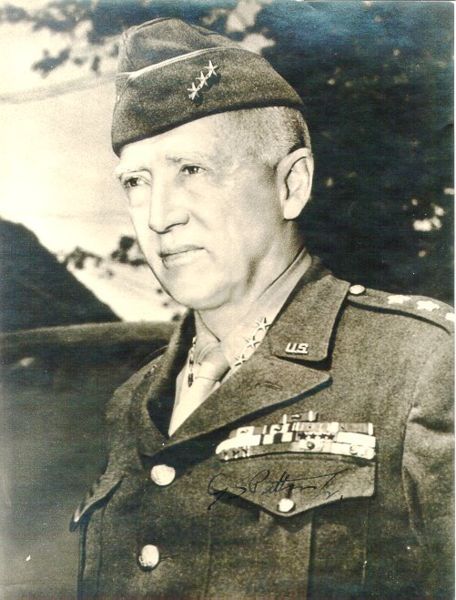. The road in France that can collect solar energy has a pay off point 400 years from now....too bad it is broken. Maybe 2.0 will be better.
Last edited:
Uncle Sam as entrepreneur |
Before Covid-19, the record for the fastest vaccine development — for mumps — was four years. Most vaccines have required more than a decade of research and experimentation. |
Yet yesterday morning, less than a year after the discovery of Covid, a critical care nurse in Queens named Sandra Lindsay became the first American to participate in the mass vaccination program for the coronavirus. “I feel like healing is coming,” she said afterward. |
It is a stunning story of scientific success. |
It also fits a pattern that stretches back decades: Many of the biggest technological breakthroughs in American history have not sprung from the private sector. They have instead been the result of collaboration between private companies and the federal government. |
The Defense Department, after all, built the internet. Government research and development also led to transistors, silicon chips, radar, jet airplanes, satellites, artificial limbs, cortisone, flat screens and much more, as the M.I.T. economists Jonathan Gruber and Simon Johnson point out in their recent book, “Jump-Starting America.” |
“Almost everything about your computer today — and the way you use it — stems from government funding at the early stages,” Gruber and Johnson write. |
Why? Because basic research is usually too uncertain and expensive for any one company to afford. Often, it isn’t even clear which future products the research may create. No kitchen appliance company ever would have thought to do the military research that led to the microwave oven. |
With Covid, the vaccines from both Pfizer and Moderna rely on years of government-funded (and sometimes government-conducted) research into viral proteins and genetics. That research, Kaiser Health News explains, is “the essential ingredient in the rapid development of vaccines in response to Covid-19.” |
The federal help accelerated this year. The government funded Moderna’s work in recent months, as part of the billions of dollars it spent to make possible a record-breaking vaccine, The Atlantic’s Ed Yong writes. And while Pfizer turned down direct federal funding, it asked for the government’s help in procuring supplies and also signed a $1.95 billion “advance purchase” agreement with Washington. |
As my colleague Neil Irwin has written: “The nine months of the pandemic have shown that in a modern state, capitalism can save the day — but only when the government exercises its power to guide the economy and act as the ultimate absorber of risk. The lesson of Covid capitalism is that big business needs big government, and vice versa.” |
What are the lessons for the post-Covid world? Solving the biggest challenges, like climate change, will almost certainly depend on a combination of public-sector funding and private-sector ingenuity. |
Yet as Gruber and Johnson note, federal funding of science has become a smaller part of the U.S. economy than it used to be. Which means the Covid vaccine is both an inspiring success and something of an exception. “On its current course,” the economists write, “America seems unlikely to continue its dominance of invention.” |
Give credit where it is due... Donald Trump. It is an amazing accomplishment. I am simply giving credit where it is due, not wanting to inflame the haters.Any government project (or joint project with the private sector) that fails gets lots of attention. Rightfully so. But it is also important to reflect on why governments continue to be involved in risky, new product ventures and why it is important to us that they continue to do so.
My example below is not about a solar road in France, but the concept is the same.
(I can't link to the article since it was in my daily email feed from David Leonhardt of the NYT)
Uncle Sam as entrepreneur
I don't remember who said, "tell someone what to do, not how to do it, and they will surprise you with their genius".

He had nothing to do with any of the planning or execution. He politicized the entire process, spent most his time dividing the country and insulting scientist and in fact, science itself. He had no strategy for dealing with the increasing tole of the virus and we now have 300k dead americans because of ineptness, lack of intelligence and his seemingly bottomless pettiness. And now he assaults and tears at the fabric of democracy and the very tenants this country was founded on and yet you still want to support him. I suppose you would say the untold suffering and 300k dead Americans are the fault of the media?I am simply making an observation related to this thread. Developing a vaccine, clearing the regulatory approval path with FDA approval, approving funding, ramping up production, planning and executing distribution are all monumental accomplishments. All of the medical community and liberal media scoffed at Trump suggesting this could get this accomplished before the end of 2020. I watched a montage of all the clips from the medical community, scientists and liberal media last night stating it couldn't be done. This allows people to get back to work and businesses and the general public to get on with their lives. Who do you think made this happen? If it had been Obama he would have been heralded and praised. Give credit where it is due and be pleased that someone had the ability to get this pushed through such a monstrous bureaucracy. How long does it take to get approval to build a house in California, or build a road nonetheless?
